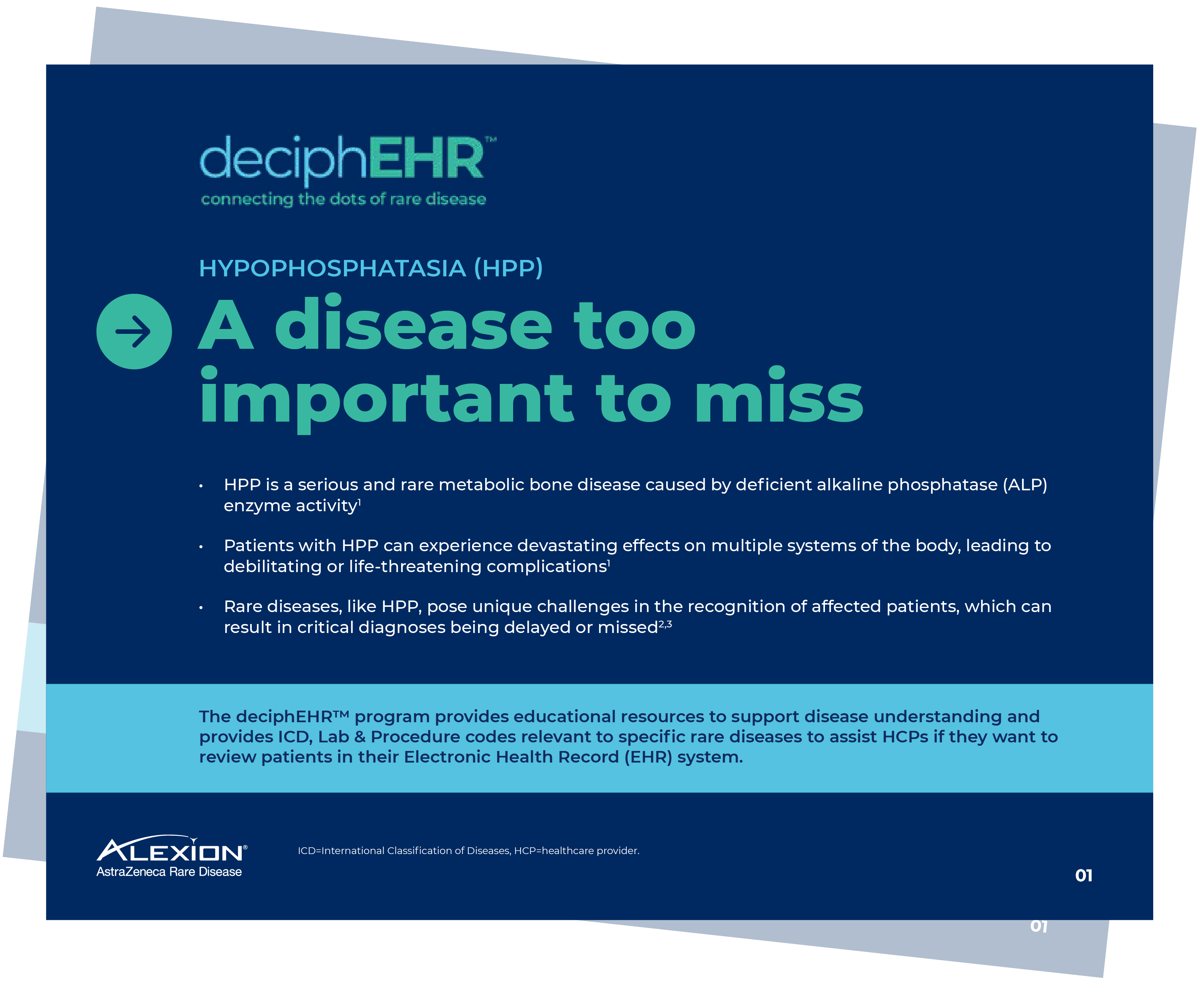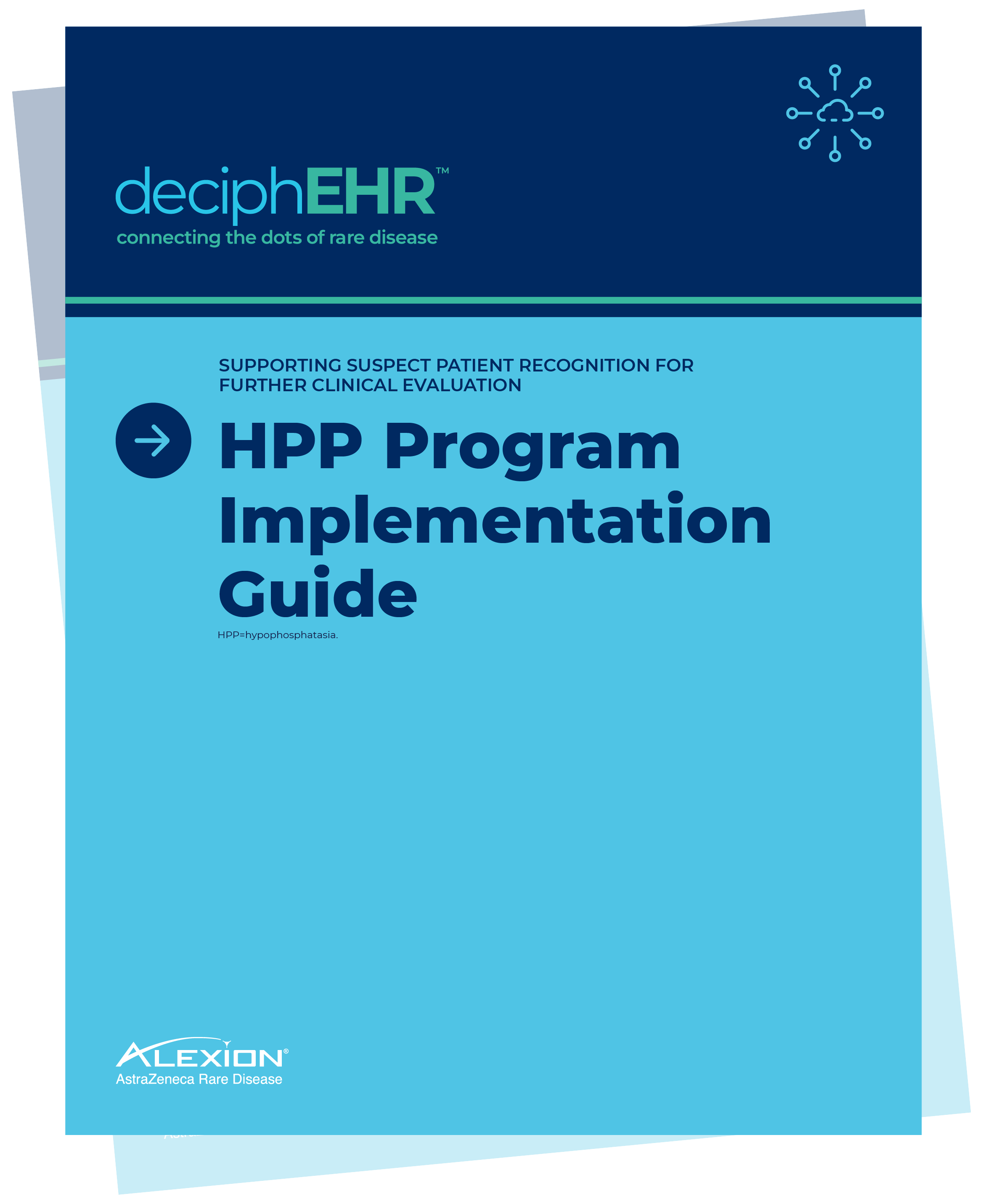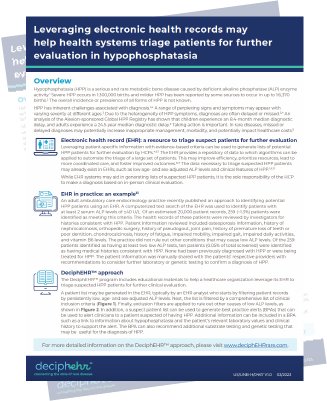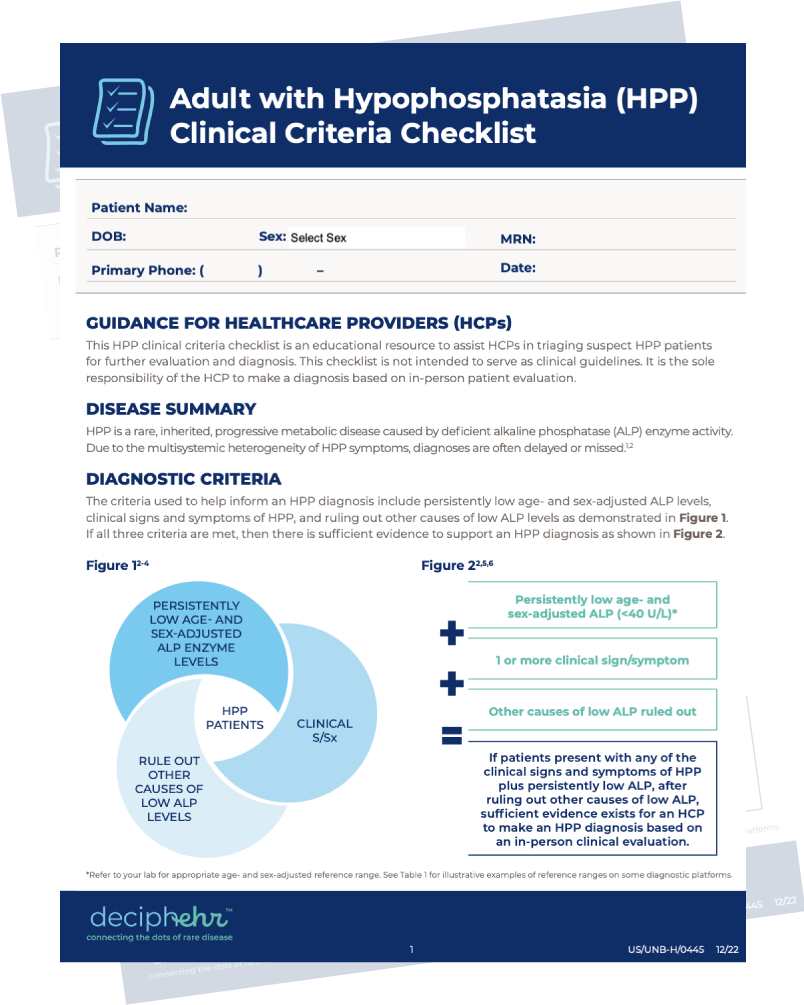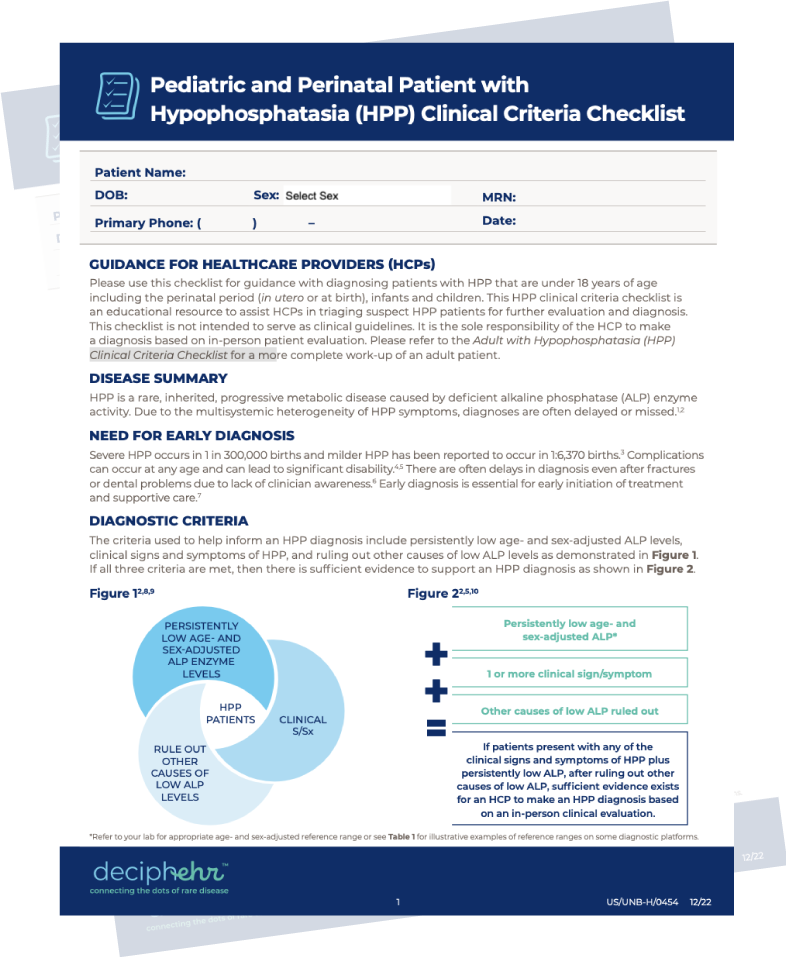A disease too important to miss
- Rare diseases, like HPP, pose unique challenges in the recognition of affected patients. As a result, critical diagnoses can be delayed or missed1,2
- DeciphEHR™ provides educational resources to help health systems, hospitals, and specialty practices leverage their electronic health record (EHR) systems to help triage suspect patients for further clinician evaluation and employ diagnostic best practices
Take action with an HPP toolkit.
Leveraging EHRs may help health organizations triage patients for further evaluation3
Why is HPP patient recognition so important?

HPP is a serious condition that may lead to death in infants or young children or severe physical impairment at any age.2,4

HPP can present at any age, causing varying degrees of impairment.2

The birth prevalence of severe HPP has been estimated at 1 in 300,000.5
EHR=electronic health record.
References: 1. Navarrete-Opazo AA, Singh M, Tisdale A, Cutillo CM, Garrison SR. Can you hear us now? The impact of health-care utilization by rare disease patients in the United States. Genet Med. 2021;23(11):2194-2201. 2. Högler W, Langman C, da Silva HG, et al. Diagnostic delay is common among patients with hypophosphatasia: initial findings from a longitudinal, prospective, global registry. BMC Musculoskelet Disord. 2019;20(1):80. 3. Ben-Assuli O, Sagi D, Leshno M, Ironi A, Ziv A. Improving diagnostic accuracy using EHR in emergency departments: a simulation-based study. J Biomed Inform. 2015;55:31-40. 4. Whyte MP, Leung E, Wilcox WR, et al. Natural history of perinatal and infantile hypophosphatasia: a retrospective study. J Pediatr. 2019;209:116-124.e4. 5. Mornet E, Yvard A, Taillandier A, Fauvert D, Simon-Bouy B. A molecular-based estimation of the prevalence of hypophosphatasia in the European population. Ann Hum Genet. 2011;75(3):439-445.


